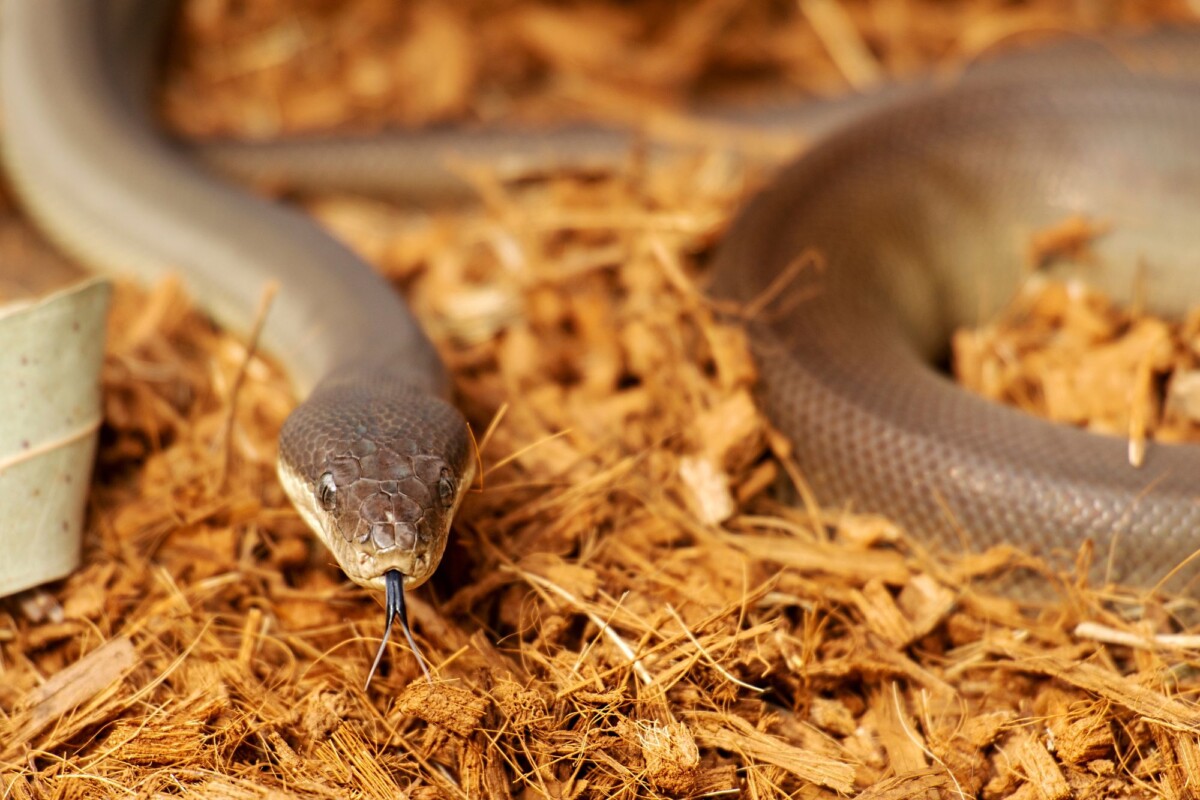
BHP is investing $7.8m into Curtin University’s environmental DNA (eDNA) research program which supports global conservation efforts.
The eDNA for Global Environment Studies (eDGES) program includes projects monitoring the endangered Pilbara olive python in WA, protecting native birds in Chile’s high-altitude wetlands, detecting elusive underground invertebrates and developing new tests to identify invasive marine species.
BHP head of biodiversity Dr Tim Cooper says the company is proud to support innovative projects like eDGES.
“The eDGES program has the potential to create a new generation of biodiversity conservation tools to help industry and government make informed decisions,” he said.
“The program is funded by our Social Investment Framework under the ‘Environment’ stream – helping to fill knowledge gaps for better biodiversity and conservation outcomes to help us improve sustainability in our mining processes, while also training the next generation of genetic and data scientists.”
Curtin University head of the Trace and Environmental DNA (TrEnD) Laboratory Professor Morten Allentoft says the research is uncovering valuable insights into the challenges different species are facing.
“Living organisms leave behind traces of DNA in water, soil or air and we can use these genetic breadcrumbs to monitor the health of habitats, track endangered species and detect invasive ones,” he said.
“Over the past five years, our eDGES program has delivered new high precision biomonitoring tools and provided fundamental new knowledge on biodiversity in threatened ecosystems.
“This second stage of eDGES will elevate research efforts even further, with some projects ongoing and new ones just about to start.”
The new funding will extend the eDGES program for another four years, building on the success of its first stage, which launched in 2020.
Curtin University’s School of Molecular and Life Sciences program co-leader Professor Euan Harvey says the new funding is a pivotal step in pushing the boundaries of what’s possible in environmental monitoring.
“We’re excited to embark on this next phase of research, which will help us support sustainable environmental management across the globe,” he said.
“As we face unprecedented environmental changes, our goal with the eDGES program is to create a comprehensive understanding of biodiversity that can influence policy and preservation practices.”
The nine ongoing projects of the eDGES program include:
Improving reptile monitoring in the Pilbara – Developing new eDNA methods to survey threatened and elusive reptile populations in the Pilbara region, where mining activity overlaps with the greatest diversity of lizard and snake species in WA.
Underground fauna detection and conservation – Developing high-resolution eDNA tools to monitor the biodiversity of groundwater habitats, thereby gaining new evolutionary insights and better conservation of species in this hidden world.
Tracking Environmental restoration of Salar de Punta Negra – Using eDNA analysis, groundwater data and ecological models to provide guidelines for the long-term rehabilitation of Chile’s Punta Negra salt flat – environmentally damaged due to water extraction.
Detecting invasive marine species – Advancing high-precision eDNA technology, allowing for early detection of invasive marine species such as foreign oysters and sea squirts to help make more informed management decisions.
Mapping marine life in the Northern Pilbara – Documenting the diversity of marine species in the Pilbara region, many of which are currently unknown. The findings will be compiled into a book, Marine Life of the Pilbara, to help in identifying and distinguishing between native and invasive species.
Broad-scale Monitoring of land ecosystems with eDNA – Developing and optimising eDNA methods for measuring terrestrial biodiversity changes at broad scales. One goal is to reduce the reliance on special equipment and cold storage allowing for efficient eDNA-based biodiversity monitoring in dry, remote areas.
Living waters of Western Australia (LiWA) – This project will enhance the ability to monitor wetland health using DNA-based survey methods, crucial for tackling wetland biodiversity loss in WA. Ancient DNA from sediments will be used to examine past biodiversity changes.
Measuring species abundance with eDNA – eDNA methods can show if species are present but not how many individuals there are. This project will develop new cutting-edge methods to estimate species abundance from eDNA samples.
Using environmental DNA in natural capital accounting – Aims to develop a framework for implementing eDNA indicators of biodiversity into natural capital accounting. By merging environmental and economic information, businesses can track their impacts and make more informed, sustainable decisions.
Curtin University leads nation in Earth Sciences
Curtin University has been recognised as a top performer in the 2024 Global Ranking of Academic Subjects by ShanghaiRanking Consultancy, achieving top 10 status in 20 subjects in Australia, including a national first-place ranking for Earth Sciences.
It also ranked in the top 20 globally for both Business Administration and Mining and Mineral Engineering and secured top 75 placements worldwide in eight subjects including Hospitality and Chemical Engineering.
Curtin University vice-chancellor Professor Harlene Hayne says the strong results reflect Curtin’s commitment to academic excellence and impactful research.
“These outstanding rankings demonstrate Curtin’s focus on delivering world-class learning and teaching that addresses real-world challenges,” she said.
“Our number one national ranking in Earth Sciences and strong performances across engineering, business and social sciences solidify Curtin’s place as a leading university both in Australia and globally.”
Key highlights from the 2024 Global Ranking of Academic Subjects include:
- 1st in Australia for Earth Sciences
- 3rd in Australia for Chemical Engineering
- 4th in Australia for Business Administration
- 5th in Australia for both Mathematics and Civil Engineering
- 6th in Australia for Mining and Mineral Engineering, Management, Psychology and Hospitality and Tourism.
The Global Ranking of Academic Subjects measures the performance of more than 5,000 universities worldwide, spanning disciplines in engineering, life sciences, medical sciences, natural sciences and social sciences.


